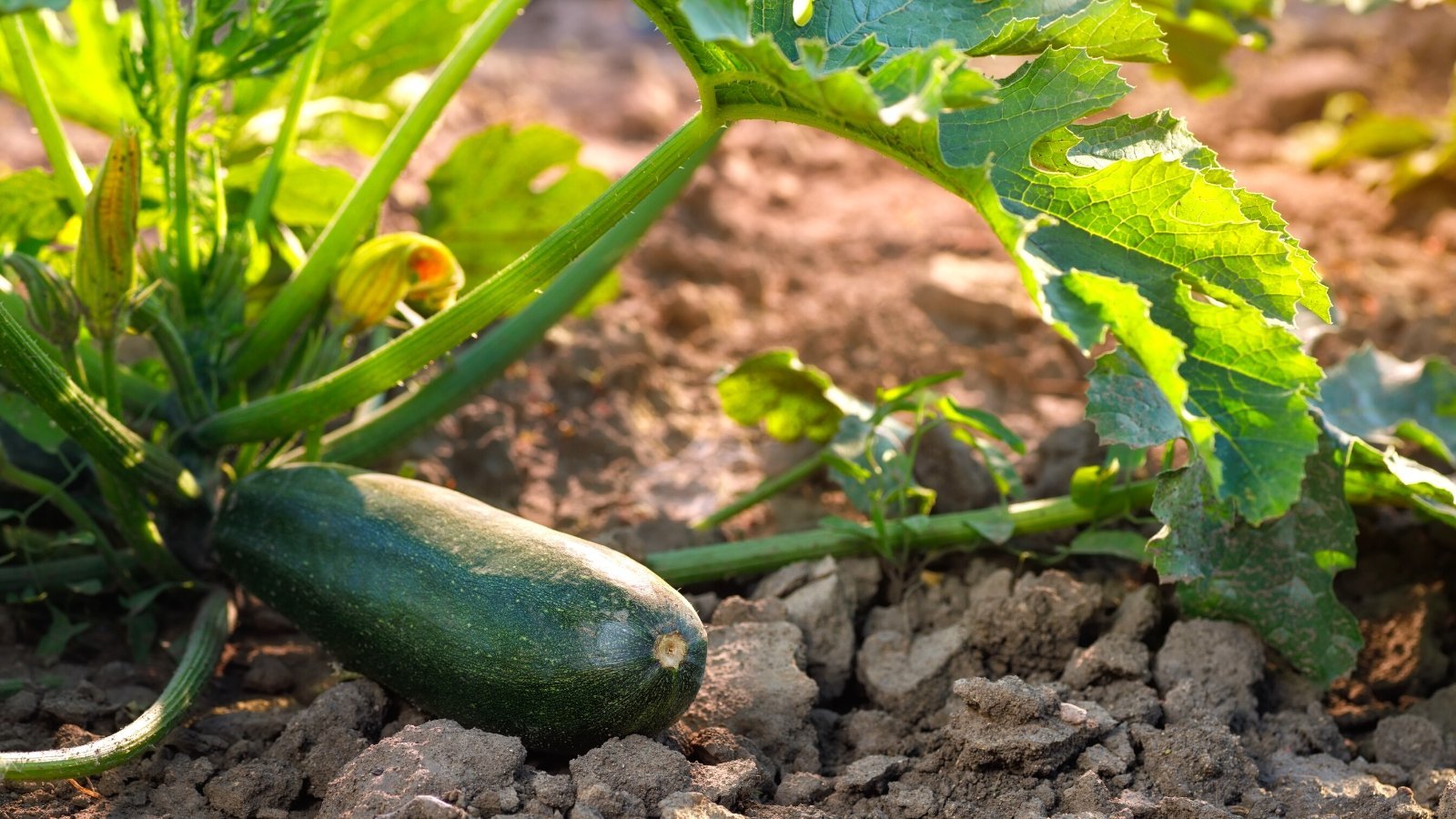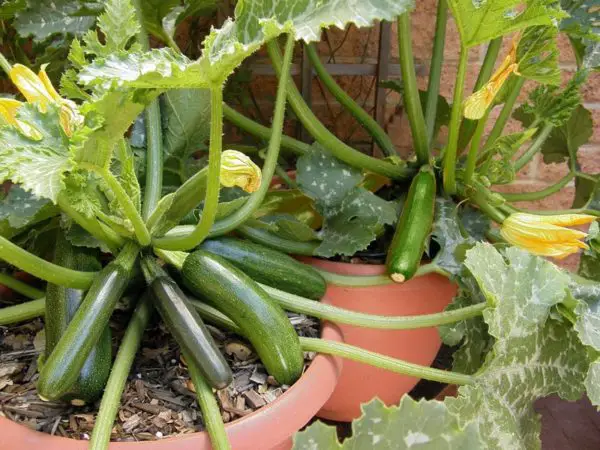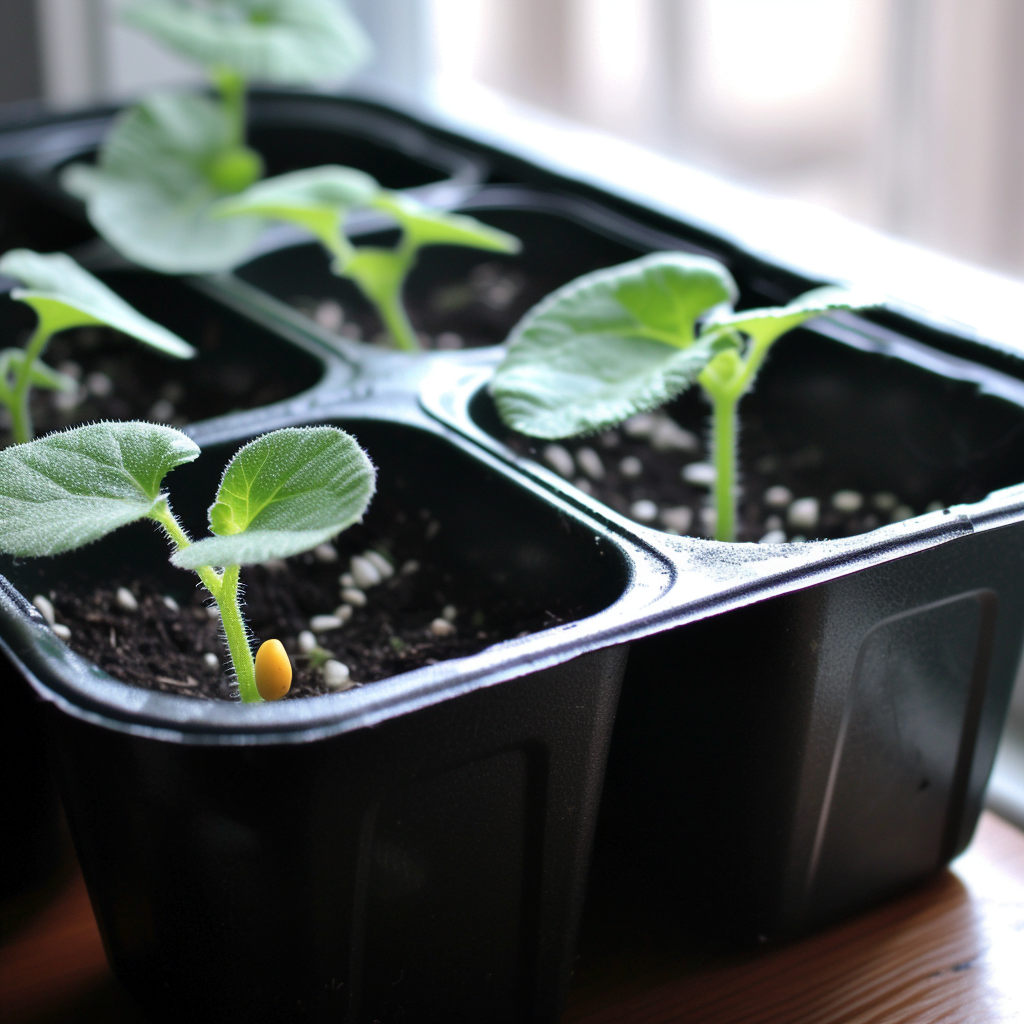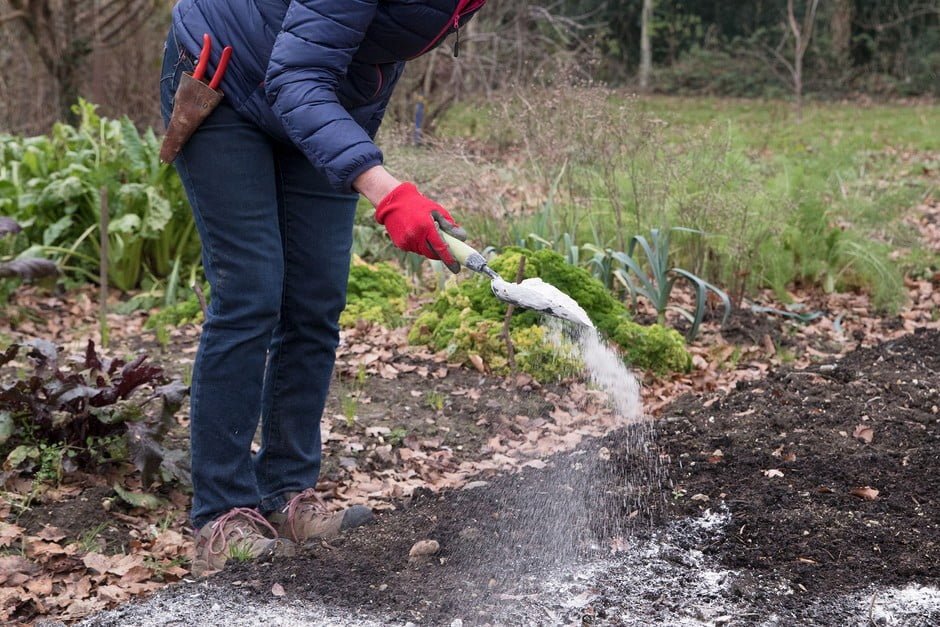Zucchini, scientifically known as Cucurbita pepo, is a popular summer squash that is cherished for its mild flavor and versatility in various dishes. A common question among gardeners and enthusiasts is whether zucchini thrives best in wet or dry soil conditions. In this article “Do zucchini like wet or dry soil?”, we will explore this query by examining the preferred soil moisture levels for zucchini plants and unveiling the factors that influence their growth and productivity.
By the end, you will gain a comprehensive understanding of the ideal soil condition for cultivating thriving zucchini plants. Zucchini plants, like most vegetables, have specific requirements that impact their growth and development. Understanding these factors and how they influence zucchini plants can help optimize their productivity. This article will explore the various factors affecting zucchini growth, including water requirement, soil moisture, pH levels, drainage, temperature, organic matter, sun exposure, mulching, container gardening, and spacing. By examining each of these factors in detail, you can gain insights into the best practices for cultivating healthy and thriving zucchini plants.
Water Requirement
Water is essential for the growth and development of zucchini plants. Understanding the specific water requirements at different stages of the plant’s lifecycle is crucial for optimal cultivation.
Establishment Phase
During the establishment phase, zucchini plants require consistent moisture to develop a strong root system. Adequate water supply ensures the plants’ survival and enables them to establish themselves successfully in the soil.
Growth and Fruit Development Phase
As zucchini plants enter the growth and fruit development phase, their water requirements increase. Adequate watering during this stage is essential for the development and enlargement of the fruits. Insufficient water supply can result in stunted growth and smaller fruit production.
Harvesting Phase
Towards the end of the zucchini plant’s lifecycle, water requirements gradually decrease. However, it is still important to provide sufficient moisture to maintain plant health and ensure quality produce during the harvesting phase.
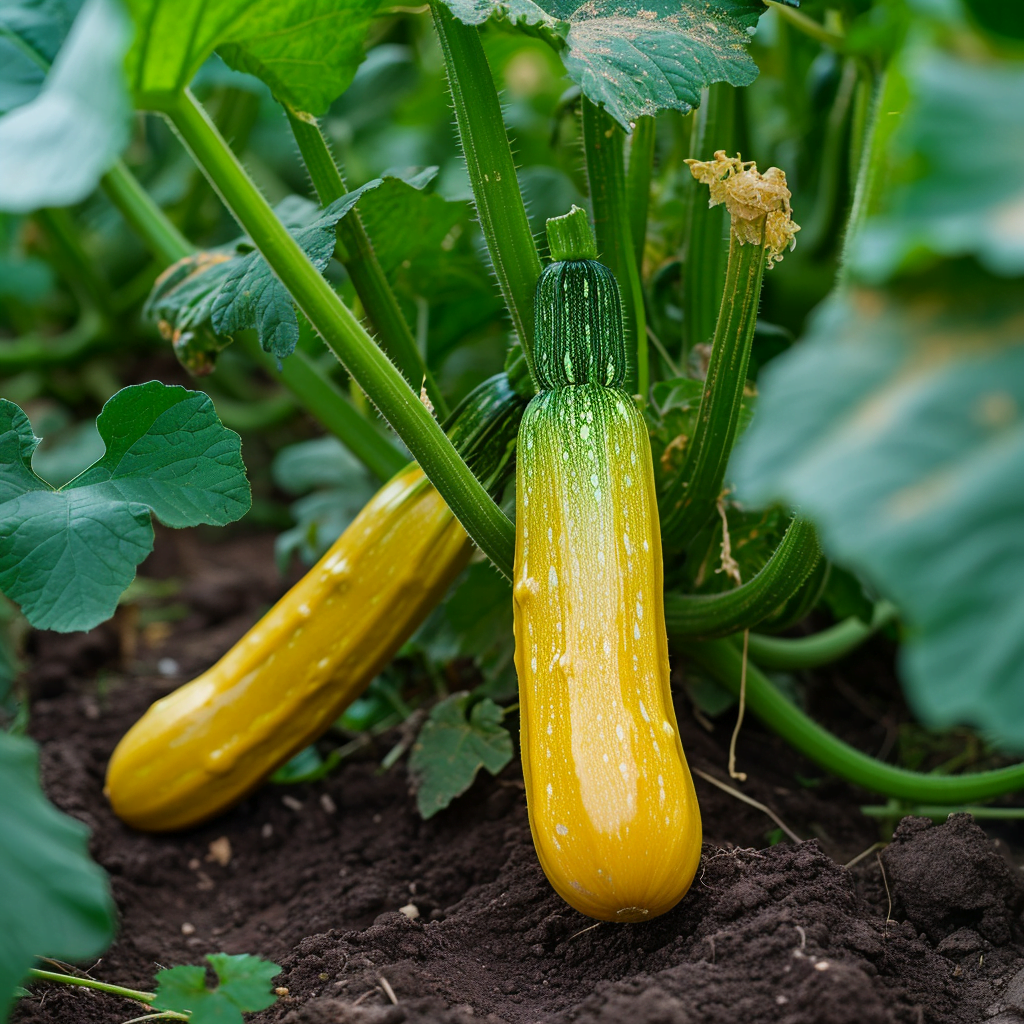
Soil Moisture
Soil moisture levels play a crucial role in the overall health and growth of zucchini plants. Maintaining proper soil moisture is vital to support root development, nutrient uptake, and overall plant productivity.
General Moisture Levels
For optimal growth, zucchini plants require consistently moist soil. The soil should not be waterlogged or excessively dry. Moisture levels can be determined by feeling the soil with your hand or using a soil moisture meter. It is important to note that while zucchini plants prefer moist soil, overwatering can lead to root rot and other detrimental effects.
Overwatering
Overwatering zucchini plants can lead to waterlogged soil, which negatively affects root health and oxygen availability. When soil is excessively wet, the roots may suffer from oxygen deprivation and become susceptible to diseases such as root rot. Additionally, overwatering can leach nutrients from the soil, leading to nutrient deficiencies and hindered plant growth.
Underwatering
Underwatering can be equally detrimental to zucchini plants. Insufficient moisture in the soil can inhibit nutrient uptake, hinder plant growth, and result in stunted fruits. It is essential to provide adequate water to ensure healthy and vigorous growth.
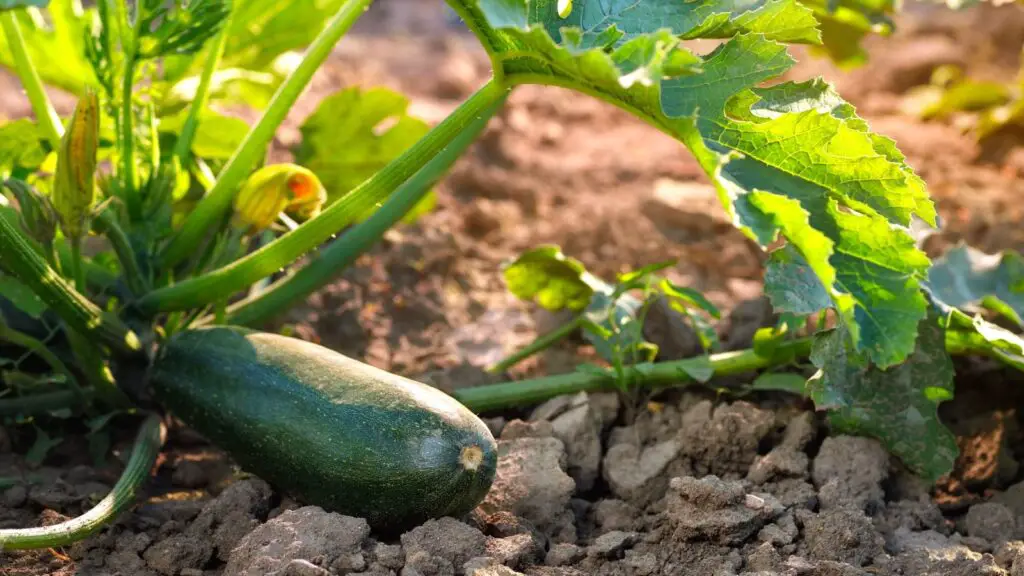
pH Levels
The pH level of the soil significantly impacts zucchini plant health and growth. The pH scale measures the acidity or alkalinity of the soil and is essential for proper nutrient availability to the plants.
Ideal pH Range
Zucchini plants thrive in slightly acidic to neutral soil, with an ideal pH range of 6.0 to 7.0. Outside of this range, nutrient deficiencies can occur, hindering plant growth and productivity.
Effects of pH Imbalance
If the pH level of the soil strays too far from the ideal range, zucchini plants may struggle to absorb essential nutrients. Acidic soils (pH below 6.0) can result in inadequate nutrient availability, particularly for minerals such as calcium and phosphorus. Alkaline soils (pH above 7.0) can impede the absorption of nutrients such as iron, zinc, and manganese. Regular soil testing and adjusting the pH level as needed can ensure optimal nutrient availability for zucchini plants.
Drainage
Proper soil drainage is crucial for the health and growth of zucchini plants. Insufficient drainage can lead to waterlogging, root rot, and hindered plant development.
Effects of Poor Drainage
When water does not drain effectively from the soil, it can lead to waterlogged conditions. Waterlogged soil restricts oxygen availability to the roots, which can result in root rot and subsequent plant mortality. Poor drainage also limits nutrient availability and can result in imbalances that negatively impact plant growth.
Improving Soil Drainage
Improving soil drainage can be achieved through several methods. These include incorporating organic matter, such as compost, to enhance soil structure and create channels for water to flow. Adding inorganic amendments, such as perlite or sand, can also improve soil porosity and drainage. Properly preparing the soil and avoiding compacted areas can also contribute to better drainage and healthier zucchini plants.
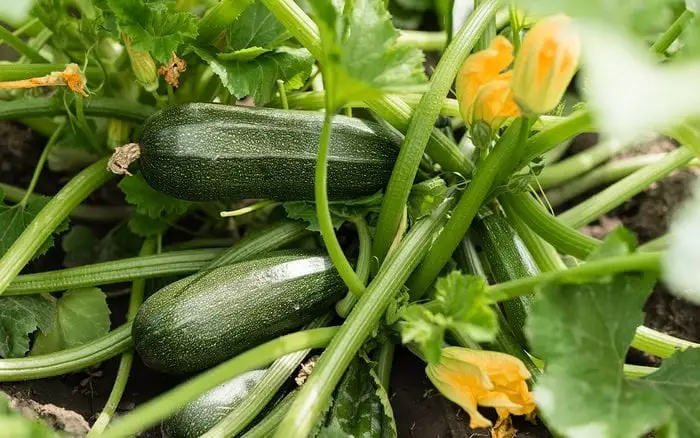
Temperature
Temperature plays a crucial role in the growth and development of zucchini plants. Understanding the optimal temperature range and the effects of extreme temperatures is essential for successful cultivation.
Optimal Temperature Range
Zucchini plants thrive in temperatures between 70°F and 85°F (21°C to 29°C). Within this temperature range, the plants experience optimal growth rates and fruit development.
Effects of Extreme Temperatures
Extreme temperatures, whether excessively hot or cold, can adversely affect zucchini plants. High temperatures above 90°F (32°C) can cause reduced flower production, fruit abortion, and diminished overall plant vigor. Similarly, temperatures below 50°F (10°C) can slow growth, inhibit flower formation, and hinder fruit development. Monitoring temperature fluctuations and protecting zucchini plants from extreme conditions can help maintain optimal growth and yield.
Organic Matter
The presence of organic matter in the soil has numerous benefits for zucchini plants. Organic matter can improve soil structure, nutrient retention, and microbial activity.
Benefits of Organic Matter
Incorporating organic matter, such as compost or well-rotted manure, into the soil enhances its fertility by increasing nutrient availability. Organic matter improves soil structure, promoting better water retention and drainage. It also enhances microbial activity, leading to increased nutrient mineralization and improved overall soil health.
Improving Soil Structure
By improving soil structure, organic matter creates a favorable growing environment for zucchini plants. It increases the soil’s water-holding capacity, allowing roots to access moisture as needed while still providing adequate drainage. The presence of organic matter also encourages the growth of beneficial soil organisms, which aid in nutrient cycling and disease suppression.
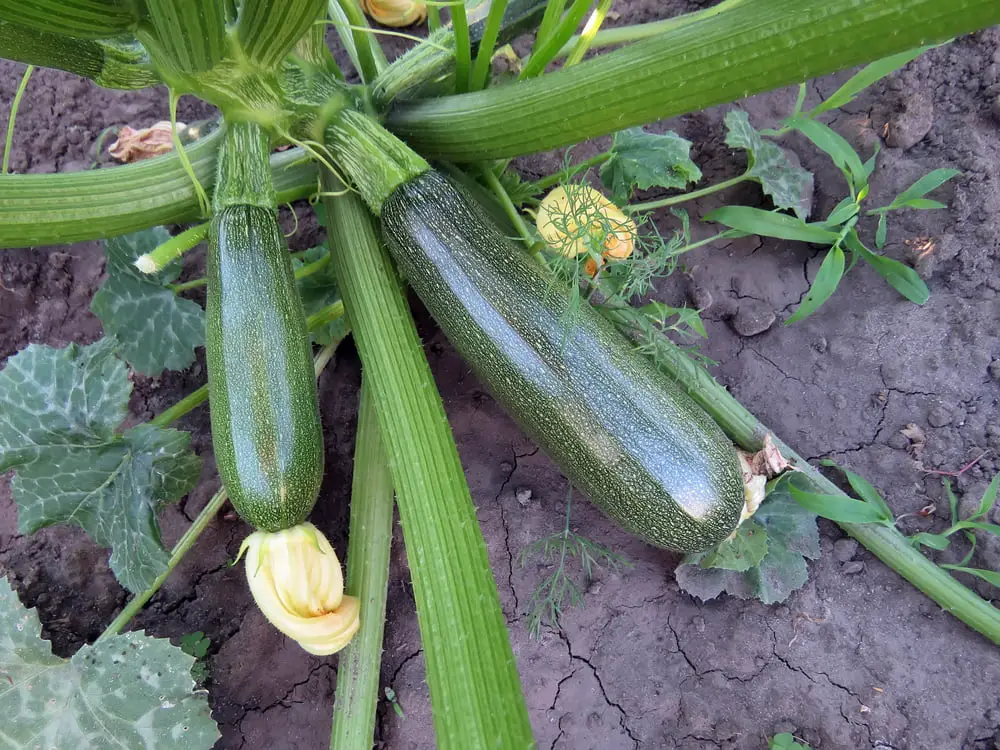
Sun Exposure
Proper sun exposure is essential for the healthy growth and development of zucchini plants. Adequate sunlight enables photosynthesis, the process through which plants convert sunlight into energy.
Amount of Sunlight
Zucchini plants require at least six to eight hours of direct sunlight per day to thrive. Insufficient sunlight can result in weak and leggy plants, delayed flowering, decreased fruit production, and overall poor growth.
Optimal Sun Exposure
The ideal sun exposure for zucchini plants is full sun. Full sun exposure maximizes photosynthesis, ensuring the plants receive the energy needed for vigorous growth and fruit development. Placing zucchini plants in locations that receive ample sunlight is crucial for their success.
Effects of Insufficient Sunlight
When zucchini plants receive inadequate sunlight, they may become elongated and weak, as they stretch to reach for available light. This can lead to decreased productivity and subpar fruit quality. Ensuring proper sun exposure by choosing the right planting location is paramount for optimizing zucchini plant growth.
Mulching
Mulching is an effective technique that can benefit zucchini plants in several ways. Mulch helps conserve moisture, moderate soil temperature, suppress weed growth, and improve overall soil health.
Benefits of Mulching
Applying a layer of organic mulch, such as straw or wood chips, around zucchini plants provides several advantages. Mulch acts as a barrier, reducing soil moisture evaporation and helping maintain consistent soil moisture levels. It also moderates soil temperatures, protecting the roots from extreme heat or cold. Additionally, mulch suppresses weed growth, which can compete with zucchini plants for nutrients and water.
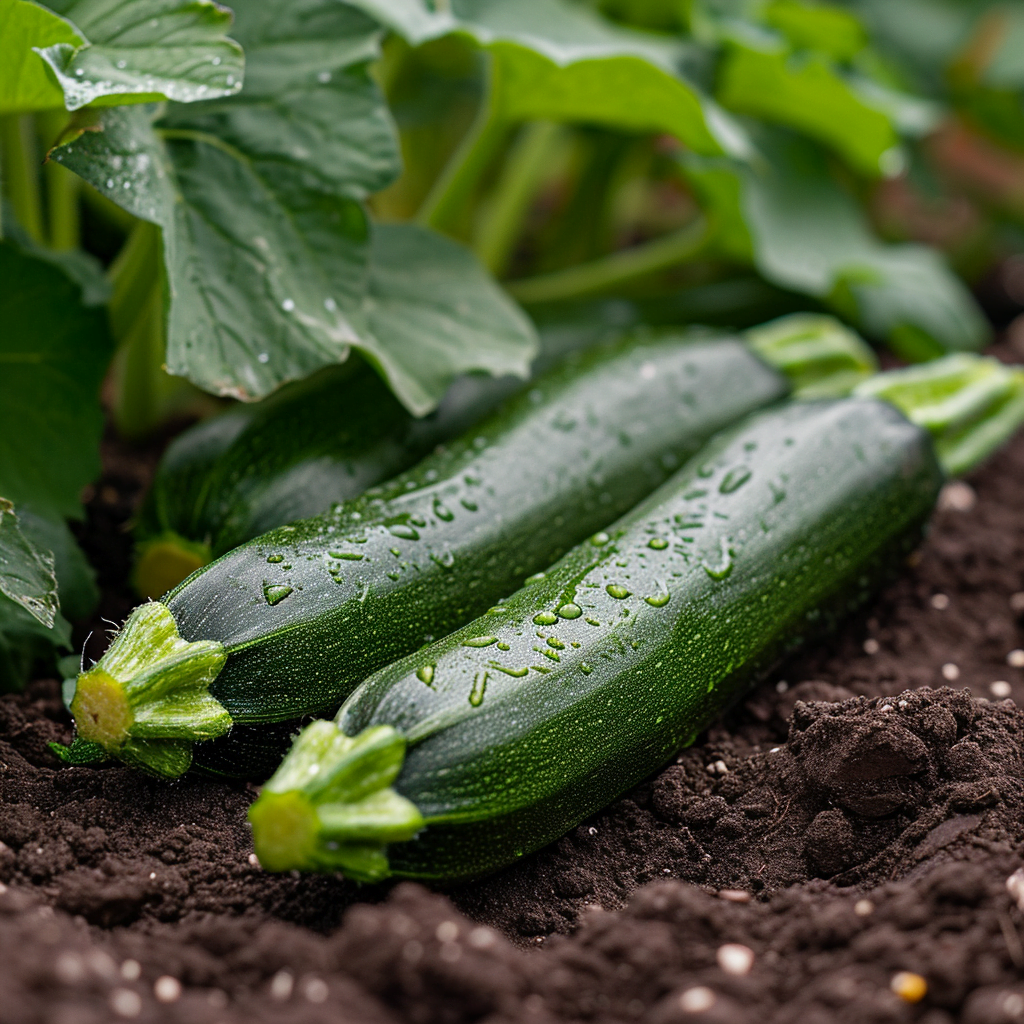
Choosing the Right Mulch Type
When selecting mulch for zucchini plants, it is important to choose organic materials that decompose gradually, providing a continuous supply of organic matter and nutrients to the soil. Avoid using excessively thick mulch layers that can trap moisture, potentially leading to root rot or fungal diseases. Striking a balance with mulch thickness and utilizing appropriate organic materials can optimize the benefits of mulching for zucchini plants.
Container Gardening
Zucchini plants can also be successfully grown in containers, opening up possibilities for gardeners with limited space or poor soil conditions.
Selecting the Right Container
When choosing a container for zucchini plants, opt for a large pot or planter that can accommodate the plant’s root system. A container with adequate drainage holes is essential to prevent waterlogging, as zucchini plants are susceptible to root rot in overly wet conditions.
Soil and Watering Considerations
Use a well-draining potting mix specifically formulated for container gardening. This soil mix allows for proper moisture retention while avoiding excessive water accumulation. Regular watering is crucial for container-grown zucchini plants, as container soil tends to dry out faster than in-ground soil. Monitor the moisture levels and water accordingly to ensure consistent soil moisture.
Nutrient Requirements
Container-grown zucchini plants may require more frequent nutrient supplementation compared to those grown in the ground. Providing a balanced fertilizer specifically formulated for vegetable plants can ensure adequate nutrient availability for optimal growth and productivity.
Spacing
Proper spacing is essential to allow zucchini plants enough room to grow and receive adequate sunlight and air circulation.
Plant Spacing
When planting zucchini seeds or seedlings, provide ample space between individual plants. Spacing recommendations vary, but a distance of 24 to 36 inches (61 to 91 cm) between plants is generally recommended. Adequate spacing ensures that each plant has enough room for its root system and canopy to develop fully.
Row Spacing
For zucchini plants grown in rows, allow sufficient distance between rows to ensure proper air circulation and sunlight penetration. A spacing of 36 to 48 inches (91 to 122 cm) between rows is commonly recommended. Adequate row spacing facilitates access for maintenance tasks such as watering, mulching, and harvesting.
In conclusion, several factors play a significant role in the growth and productivity of zucchini plants. Understanding the water requirement, soil moisture, pH levels, drainage, temperature, organic matter, sun exposure, mulching, container gardening, and spacing requirements can help ensure optimal growing conditions. By providing zucchini plants with their specific needs, gardeners can enjoy healthy and abundant yields of this versatile and delicious vegetable.
